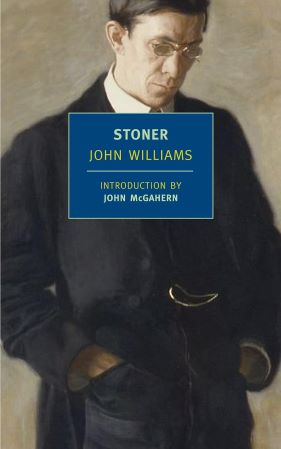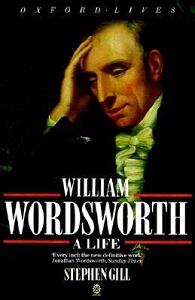Why the novel Stoner should speak to us all.

As 2024 drew to a close, I thought a lot about failure. What if I gave up? What if we all just gave up? What if we allowed our hopes for the future to disappear into the infinite chaos of potentiality?
That phrase, “the chaos of potentiality,” comes from John Williams’ novel Stoner. It is a quietly elegant portrait of a professor at a Midwestern university set at the turn of the 20th century — a detail that, for readers today, hammers home how incredible it is that we’re already a quarter of the way through the 21st. Titular character Stoner achieves success by accepting that he’s a failure. When dying, he asks himself several times, “What did you expect?”
Throughout the novel, Stoner takes inventory of the main points on which his life has hinged — his marriage, his career, his friendships, and a brief love affair. In some ways, he is obviously a loser. We are told that his colleagues “held him in no particular esteem when he was alive, [and] speak rarely of him now.” But does being a loser mean that he is also a failure?
Maybe not. Perhaps this is the role he was born to play, and he is playing it with excellence. Early in the novel, Stoner’s colleague David Masters tells him that he is “cut out for failure... Because you’d always expect the world to be something it wasn’t, something it had no wish to be...You couldn’t face them, and you couldn’t fight them; because you’re too weak, and you’re too strong. And you have no place to go in the world.”
He is too weak and yet also too strong, a difficult assessment that I find especially poignant as I evaluate myself during this turn into the new year. What lessons do I need to learn? How many of them are old, repeatedly dragging me down?
Stoner remains at the same institution throughout his career, with only brief success. He has a long marriage, which, except for a short (and rather odd) period of passion, is devoid of tenderness, understanding, or connection. He also allows his wife, Edith, a disturbed personality, to freeze him out of their home and alienate him from their daughter.
Then there’s his affair with graduate student Katherine Driscoll. The ardor between them is sympathetically described, and the meeting of their minds over her doctoral thesis indicates the situation is fully satisfying to them both. But he relinquishes her for his marriage to Edith, a relationship that began and ultimately endures on superficial footing.
Winter is connected to Stoner’s most deeply felt moments. In the time he shares with Katherine, they walk nearly every day in the woods despite the bitter cold. Then, at the heart of the novel, there’s an important turning point in a moment of crisis when Stoner “found himself wondering if his life were worth living; if it had ever been.”
In one of the most poignant passages, Stoner opens the window beside his desk and breathes in the frigid air:
“He felt himself pulled outward toward the whiteness, which spread as far as he could see, and which was a part of the darkness from which it glowed, of the clear and cloudless sky without height of depth. For an instant he felt himself go out of the body that sat motionless before the window; and as he felt himself slip away; everything — the flat whiteness, the trees, the tall columns, the night, the far stars — seemed incredibly tiny and far away, as if they were dwindling to a nothingness.”
Stoner takes refuge in his work at the university, but he’s frozen out there, too, by department head Hollis Lomax. As with his marriage, Stoner has the moral high ground here, but he buckles when faced with flawed, willful personalities. He survives these blows by enduring a progressive diminishment of his place at home and by accepting a humiliating and constrained schedule at work. There is one brief professional triumph, but even that soon passes into legend. In the minds of his colleagues and students, Stoner becomes “a campus character.”
There are so many moments in this novel that hit me in soft places I didn’t know I had. Every time the old year draws to a close, those of us fortunate enough to witness it must ask ourselves how much of our own mediocrity we’re prepared to tolerate in the new one. How much lassitude and forgiveness do we deserve as humans? How much of that forgiveness spells the ruination of our lives? It is a frightening but necessary balance to attempt to strike. I encourage you to contemplate it while reading Stoner and to let me know your thoughts in the comments below. Tell me I’m not alone!
Happy New Year.
Amanda Holmes Duffy is a columnist and poetry editor for the Independent and the voice of “Read Me a Poem,” a podcast of the American Scholar.

